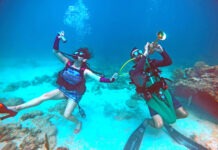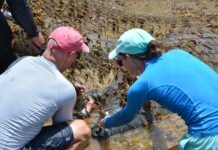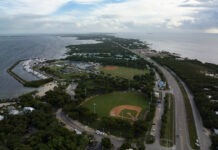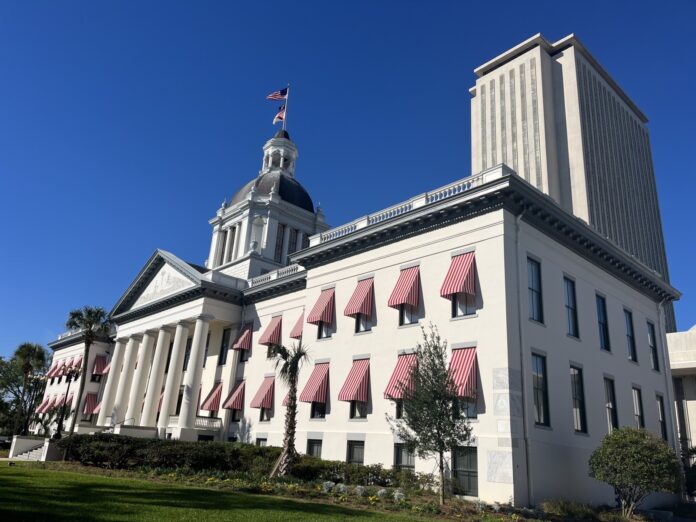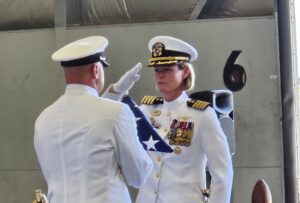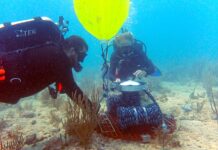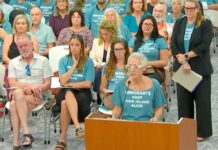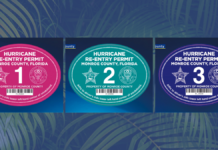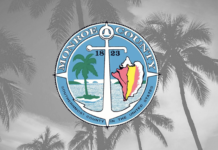Several critical Keys programs found their way into the Florida Senate and House budget proposals that were unveiled last week in Tallahassee.
While the amounts for the Keys differ between the two chambers’ budgets, the inclusion of key funding for education, environment and infrastructure is an encouraging sign as state legislators began work on the budget.
On March 28, the House and Senate Appropriations committees approved their own versions of a budget, with both totaling around $112 billion. State Rep. Jim Mooney and state Sen. Ana Maria Rodriguez both serve on their chambers’ appropriations committees. The representatives for the Keys voted in favor of their chambers’ budgets.
House and Senate floors will need to agree on a spending plan before May 2 in order to meet a 72-hour “cooling off period” before lawmakers give final approval before the end of regular session on May 5.
Senate and House budgets include $20 million in Florida Keys Stewardship Act funding to construct projects that protect, restore or enhance nearshore water quality and fisheries. Many local municipalities have used the funds in recent years to address poor water quality in canals. The money also assists local governments in acquiring land.
Keys officials are hoping funds allocated to the Florida Keys Stewardship Act are annually included in the state Department of Environmental Protection’s budget. For years, legislators representing the island chain fought not only to include an appropriation for the program, but also to secure the full amount needed for critical environmental projects. House Bill 135, sponsored by Rep. Jim Mooney, would put funding for the Keys environment on a pedestal with the Everglades and water management districts. Mooney’s bill awaits consideration in the House. A companion Senate Bill 54, sponsored by state Sen. Ana Maria Rodriguez, was supported by members in the Environment and Natural Resources Committee.
Some $5 million for a reverse osmosis plant in Marathon was included in the Senate’s budget proposal. Florida Keys Aqueduct Authority is pumping 22 million gallons of water per day from its primary source in the Biscayne Aquifer. Seawater plants in Stock Island and Marathon help supply additional water in emergency situations, as when three pipe breaks earlier in March forced FKAA to use the Stock Island plant.
House and Senate budgets propose varying amounts for the Florida Keys Marine Protection Mooring Field project. The House budgeted $805,000 while the Senate allocated $500,000 in its proposal.
Both legislative chambers propose $9.7 million for operational expenses at the College of the Florida Keys. The House and Senate also propose similar amounts for college nursing grants, $748,000. The Senate proposes roughly $43,000, almost $12,000 more than the House, for the Work Florida Student Success Incentive fund. The program aligns career education programs with statewide and regional workforce demands and high-paying job opportunities.
To assist in the coral recovery effort, both chambers propose $1 million to Mote Marine Laboratory. The Senate’s budget includes a $10 million allocation to Florida Fish & Wildlife Conservation Commission to establish and implement the framework for placement, monitoring and maintenance of artificial habitat in the Keys.
Three requests by the village of Islamorada made the House budget, including emergency backup generators storage facility, $150,000, an Islamorada Village Council Chambers/Public Works Facility feasibility study, $150,000, and a new ambulance, $190,000. The Senate’s budget proposal allocated $250,000 for the village’s council chmabers and public works facility study.
The Senate budget proposal also includes $2 million for renovations to Bruce Hall in Key West for the school district’s future administrative headquarters; $150,000 for Monroe Association of ReMARCable Citizens and $500,000 for Key Colony Beach City Hall. The Senate proposed $250,000 for the Keys Area Health Education Center, or AHEC, while the House proposed $487,500. The House proposes $3.5 million for the county’s new Emergency Operation Center in Marathon.
The budget also includes a pay increase for FWC officers and Florida Highway Patrol troopers in Monroe County.
Between Miami-Dade and Monroe counties, the budget includes $120 million for the School Readiness Program, $2.7 million for the Voluntary Pre-Kindergarten Education Program and $623,000 for school district workforce education programs.
Rodriguez told the Keys Weekly on March 28 that she’s pleased with the budget process so far.
“I’m feeling confident about the positioning of our funding, but must remain vigilant and continue fighting for our community’s share,” she said.
Amendments were filed to the Senate’s budget to include projects for Pigeon Key, $950,000, Little Truman White House, $500,000, and Habitat for Humanity organizations in the Keys, $1.9 million.


